Satellite images taken over Belarus on Wednesday suggest that organizers had begun to dismantle a large tent camp believed to house Wagner Private Military Company (PMC) mercenaries, Radio Free Europe/Radio Liberty (RFE/RL) reported, potentially weeks before the reported death of Wagner Chief Yevgeny Prigozhin.
Russian authorities announced on Wednesday that Prigozhin was on the flight manifest of a private plane that crashed in Tver Oblast, north of Moscow, and that all ten people aboard the aircraft were presumed dead. Some channels on the communications application Telegram believed to have linked to Wagner leadership appeared to confirm Prigozhin’s death shortly after the news broke on Wednesday, but Russian government officials have yet to confirm at press time if they have found the bodies and if Prigozhin was among them.
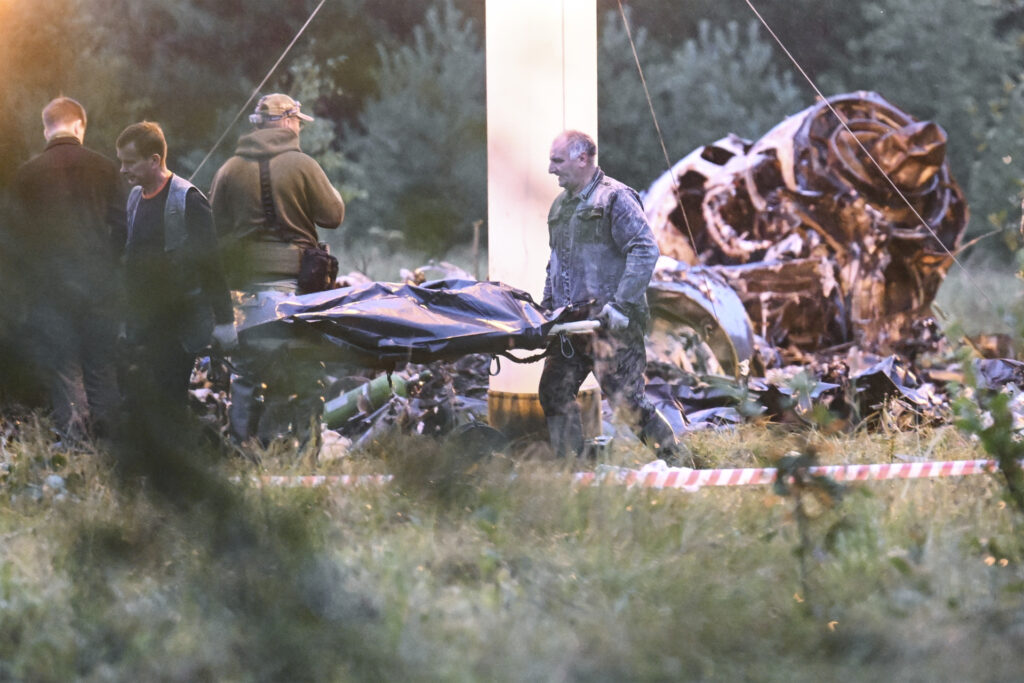
People carry a body bag away from the wreckage of a crashed private jet near the village of Kuzhenkino, Tver region, Russia, on August 24, 2023. (AP Photo)
The plane crash occurred exactly two months after Prigozhin announced an invasion of Russia from neighboring Ukraine. While Prigozhin maintained a years-long personal friendship with Russian strongman Vladimir Putin and Wagner forces have protected Russian government interests in Africa and the Middle East, Prigozhin claimed that the Russian Defense Ministry had launched attacks on his forces in Ukraine, where the mercenaries had been engaging in attacks on civilians to support Putin’s full-scale invasion of the country. Prigozhin announced that he would lead thousands of fighters on a “march for justice” to Moscow, demanding the removal of Russian Defense Minister Sergei Shoigu and other leaders but insisting he was not staging a “coup” or challenging Putin.
Less than a day later, Belarusian communist dictator Alexander Lukashenko announced that he had intervened to convince Prigozhin to stop the march and broker a deal in which Moscow would drop criminal charges against Prigozhin in exchange for him withdrawing most of his troops to Belarus. The camps RFE/RL discussed in its report on Thursday are believed to have been set up to give the troops a place to stay and train within the country following the aborted mutiny.
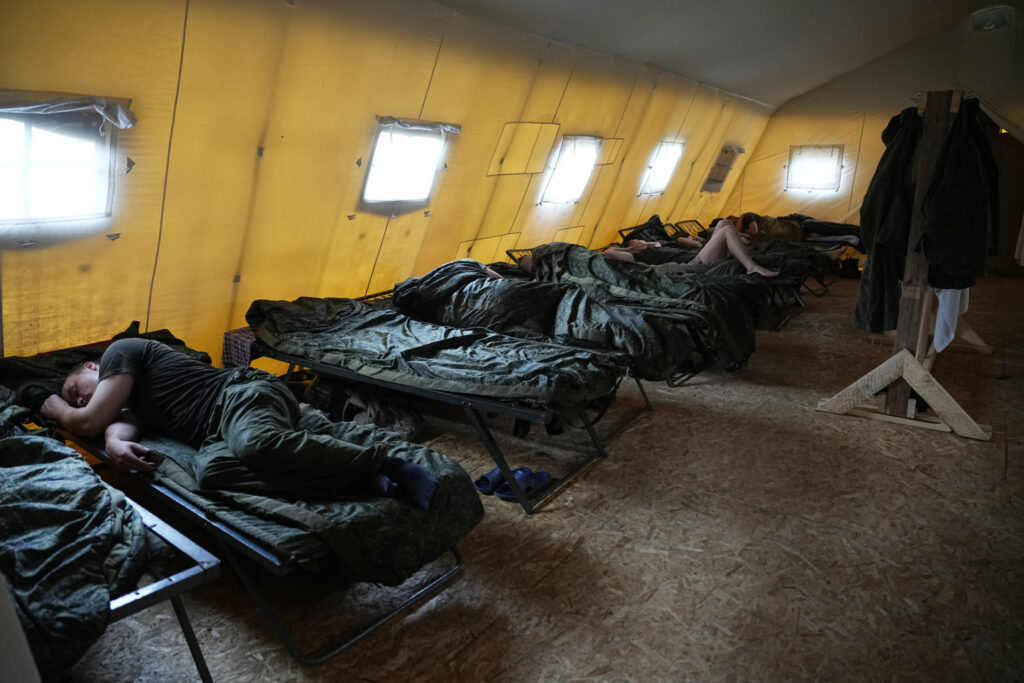
Belarusian army soldiers sleep in a tent in the Belarusian army camp near Tsel village, about 55 miles southeast of Minsk, Belarus, on July 7, 2023. (AP Photo/Alexander Zemlianichenko)
Prigozhin’s invasion of Moscow was highly embarrassing for Putin and appeared to particularly concern one of Russia’s closest allies, communist China, whose state media outlets questioned if Putin had full control of his country and challenged Putin’s wisdom in allowing Wagner to grow to such an extent in the first place.
Russia was partaking in a conference alongside China at the time of the alleged Prigozhin plane crash in South Africa, bringing together the nations of the BRICS coalition. In addition to the three aforementioned countries, India and Brazil also belong to BRICS, and the group announced the acceptance of six new members on Thursday: Argentina, Egypt, Ethiopia, Saudi Arabia, Iran, and the United Arab Emirates (UAE).
The tent camp RFE/RL identified, believed to house Wagner fighters, was located in Tsel, Belarus. The U.S.-backed outlet cited the satellite image company Planet Labs as taking photos of the camp on Wednesday, which showed “that of 273 specialized military tents — each of which houses up to 20 people — for personnel, 101 had been dismantled.”
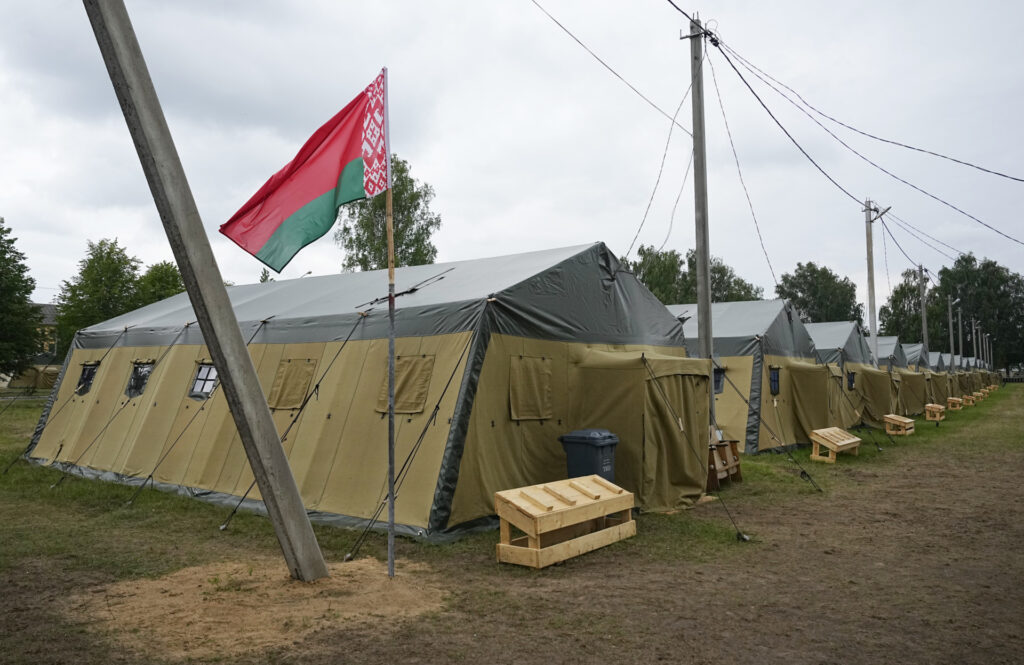
A view of the Belarusian army camp near Tsel village, about 55 miles southeast of Minsk, Belarus, on July 7, 2023. (AP Photo/Alexander Zemlianichenko)
“That would mean space for just over 2,000 Wagner fighters would have been eliminated. Some 5,000 troops were thought to have been settled at the site,” RFE/RL explained, adding that the status of the camp on Wednesday suggested that the dismantling “most likely started on August 1,” not the day of the alleged Prigozhin plane crash.
The images also peculiarly revealed that most of the military equipment the fighters possessed had not been moved from the area. Citing Wagner-affiliated Telegram posts, Radio Free Europe suggested some fighters may be on “vacation” or had left Belarus for Africa, where Prigozhin appeared to resurface in a recruitment video on Monday.
“PMC Wagner … makes Russia even greater on all continents, and Africa more free,” Prigozhin said in an undated video published on Telegram on Monday. “We’re recruiting real heroes and continue to carry out the tasks that have been set and that we promised to deal with.”
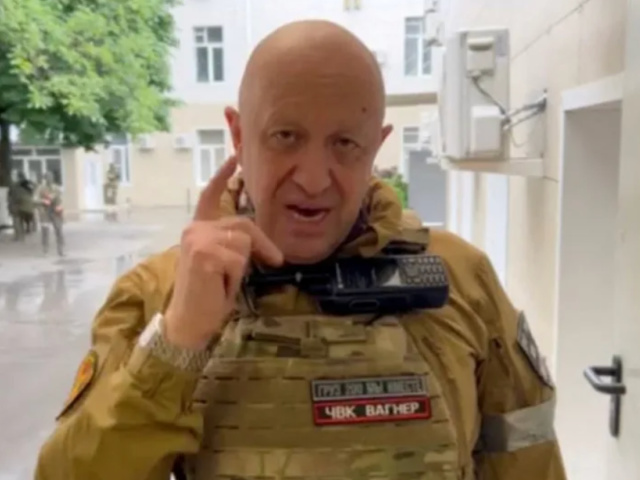
Yevgeny Prigozhin (Press Service at Concord)
Prigozhin did not identify his location, but he appeared to be in a desert area and claimed the temperature was above 100ºF.
If officials confirm his death, the video would have been his last public message.
The Russian government confirmed that a man with Prigozhin’s name was on the flight manifest, as well as several other high-ranking Wagner officials, including suspected founder Dmitry Utkin.
The Wagner PMC’s unofficially related Telegram channels also appeared to confirm the death and to blame the Russian government.
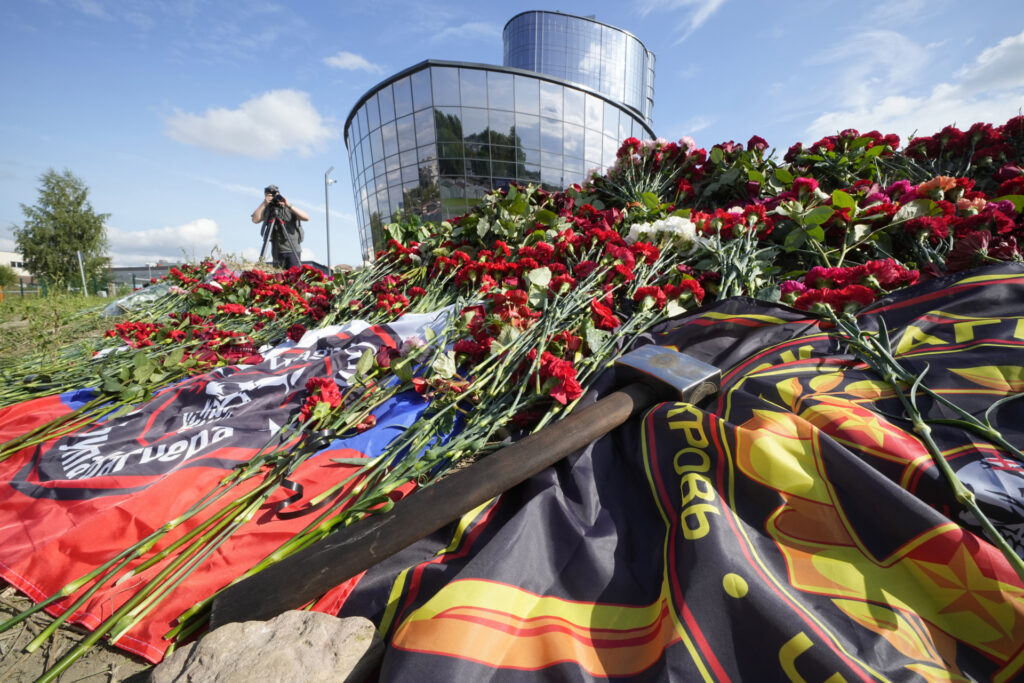
A sledgehammer, one of the symbols of PMC Wagner, lies at an informal memorial next to the former “PMC Wagner Centre” in St. Petersburg, Russia, on August 24, 2023. (AP Photo/Dmitri Lovetsky)
“The assassination of Prigozhin would have catastrophic consequences. The people who gave the order do not understand the mood in the army and the morale at all,” one such message read.
Grey Zone, one such Wagner Telegram account, claimed the Russian military shot down Prigozhin’s plane.
With Prigozhin either dead or otherwise away from the public eye, confirming any such social media contacts as official statements from Wagner is, effectively, impossible.
The American think tank the Institute for the Study of War claimed on Wednesday, citing an anonymous “insider source,” that Russian forces used “two S-300 missiles” to shoot down the plane and speculated that Prigozhin — resuming recruitment, apparently in Africa, following the aborted mutiny — may have outraged the Kremlin. It also speculated that Putin may have felt comfortable in eliminating Prigozhin because Russia had allegedly begun investing in the development of new mercenary groups to absorb and control Wagner fighters.
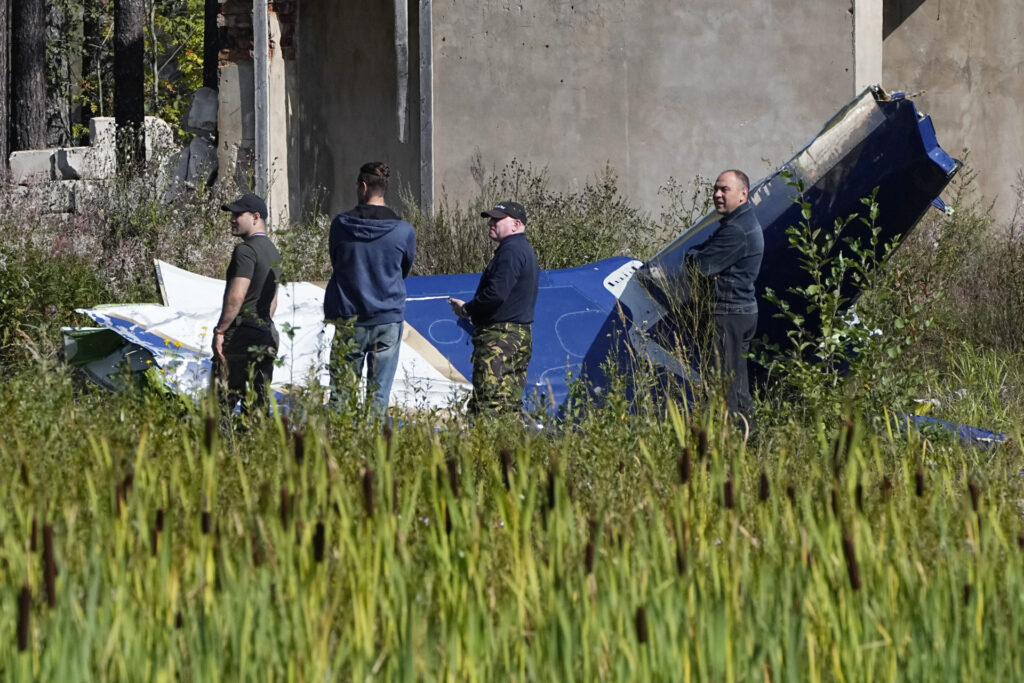
Russian servicemen inspect a part of a crashed private jet near the village of Kuzhenkino, Tver region, Russia, on August 24, 2023. (AP Photo/Alexander Zemlianichenko)
“Wagner commanders indicated that two high-ranking Wagner officials joined the Russian MoD [Ministry of Defense],” The Institute reported, “and insider sources claimed that some Wagner personnel began to leave Belarus after Belarusian President Alexander Lukashenko refused to finance Wagner when he discovered that Russia would not pay Wagner’s costs.”
Wagner PMC is not a legal entity in Russia, a fact that Putin openly lamented in July.
“The [Wagner] Group exists, but it is judicially non-existent,” Putin told the newspaper Kommersant. “The formal legalization is a separate issue that should be addressed by the State Duma [the lower chamber of the Russian parliament] and the government. It’s a complicated issue.”
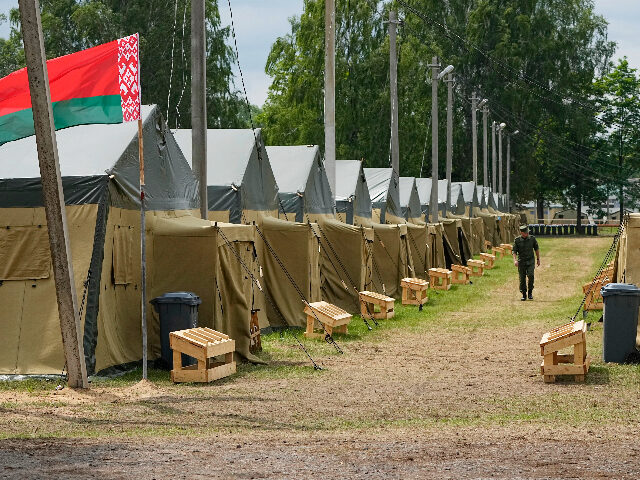
COMMENTS
Please let us know if you're having issues with commenting.